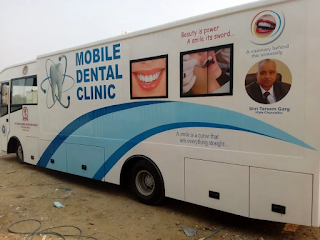Revolutionizing Health: The Rise of Mobile Bone Density Units in Health Screening
In an era where convenience and accessibility are paramount, mobile health screening services have become game-changers in the healthcare industry. Among these innovations, mobile bone density units are emerging as vital tools for proactive health management. These units bring advanced osteoporosis detection and bone health assessments directly to the community, making it easier for individuals to access crucial health services without the need to visit a hospital or clinic.
What Are Mobile Bone Density Units?
Mobile bone density units are specialized vehicles equipped with bone densitometry machines, commonly known as DXA (dual-energy X-ray absorptiometry) scanners. These units travel to various locations, providing on-the-spot bone density tests. This mobile approach eliminates the barriers of distance and time, which often prevent individuals from undergoing necessary health screenings.
The Importance of Bone Density Screening
Bone density screening is essential for detecting osteoporosis, a condition characterized by weak and brittle bones that are more prone to fractures. Osteoporosis is often called a "silent disease" because it progresses without symptoms until a fracture occurs. Regular bone density tests can identify low bone density early, allowing for timely interventions to prevent fractures and manage bone health effectively.
Advantages of Mobile Bone Density Units
- Increased Accessibility:Mobile bone density units reach underserved communities and remote areas where healthcare facilities might be scarce. This increased accessibility ensures that more people can benefit from early osteoporosis detection and treatment.
- Convenience:By bringing the screening to the patients, these units save individuals the hassle of scheduling appointments, traveling to clinics, and waiting for their turn. This convenience encourages higher participation rates in bone density screening programs.
- Cost-Effectiveness:Mobile units can reduce overall healthcare costs by catching bone health issues early, thus preventing costly treatments for fractures and other complications associated with advanced osteoporosis.
- Education and Awareness:These units often include educational components, informing communities about bone health, risk factors for osteoporosis, and the importance of regular screening. Increased awareness can lead to better health outcomes.
How Mobile Bone Density Units Operate
Mobile bone density units typically partner with community centers, workplaces, senior living facilities, and public events to offer their services. The process is straightforward and non-invasive:
- Setup:The unit parks at the designated location and sets up the DXA scanner inside the vehicle.
- Screening:Individuals enter the mobile unit, where trained technicians perform the bone density test. The test involves lying on a padded table while the DXA machine scans specific areas of the body, usually the hip and spine.
- Results:Results are often available immediately or within a short time frame. These results are reviewed by healthcare professionals who provide recommendations for further action if necessary.
The Future of Mobile Health Screening
The success of mobile bone density units highlights the potential for expanding mobile health screening services. As technology advances, we can expect to see more specialized mobile units offering a range of health screenings, from cardiovascular checks to cancer screenings. This mobile approach aligns with the growing trend towards personalized and community-based healthcare, aiming to make health services more patient-centered and efficient.
Conclusion
Mobile bone density units are revolutionizing how we approach bone health and osteoporosis prevention. By making bone density screening more accessible and convenient, these units play a crucial role in early detection and management of bone health issues. As they continue to grow in popularity, mobile health screening services will undoubtedly become a staple in preventive healthcare, contributing to healthier communities and better health outcomes for all.




Comments
Post a Comment